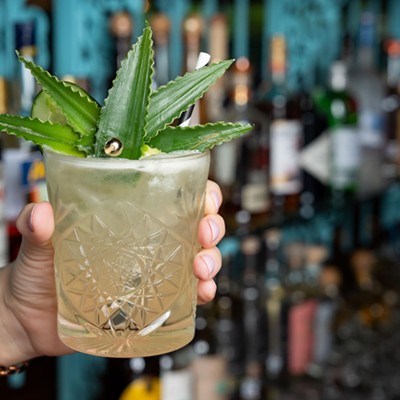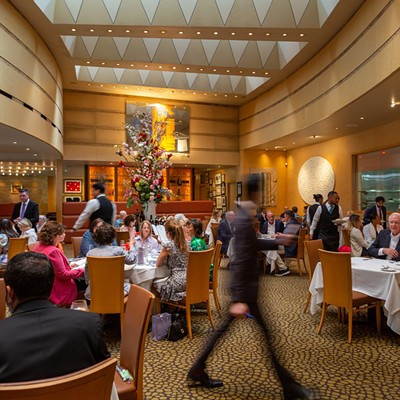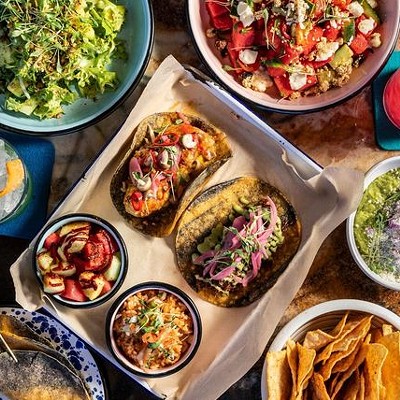"Eric [Asimov] has the best job in the world," once said a friend of mine, who happens to be a prominent wine writer based in New York. "He's the wine writer for The New York Times!" she exclaimed.
From the standpoint of most of us wine scribblers, Eric's gig is as enviable as it is prestigious. As the chief wine critic for a national daily considered by many to be the world's greatest newspaper, his voice has a reach practically unrivaled in wine writing today (his own true peer is Master of Wine Jancis Robinson, wine critic for the London-based Financial Times).
But the many perks of his career -- the E-ticket access to rare wines and leading winemakers and the backstage passes to top wine events -- are also balanced by the responsibility of being the voice of the new and current generation of wine lovers in the U.S. today. Eric can't limit his attention solely to the wines he himself likes to drink. He has to take a demotic approach that embraces all styles and price ceilings. And he needs to speak with equal eloquence, discretion and good sense, whether he's covering an under-$10 Argentine Malbec or a priceless bottle of vintage Mersault from Burgundy.
I like to call him the "Solomon" of wine Anglophone oenography. Follow him on the Twitter (@EricAsimov) and you'll find that he engages and interacts with wine enthusiasts from all walks of connoisseurship, from high-profile sommeliers and wine pundits to workaday folks just like you and me.
His new book, How to Love Wine: A Memoir and Manifesto (William Morrow, 2012), is a welcomed entry in the overcrowded field of new wine titles this year.
In it, he tells his own story of how he came to be a wine lover (including an eye-opening encounter with a bottle of Barbera by Giacomo Conterno during his years as a graduate student in American studies at the University of Texas at Austin). In many ways, he emerges as wine writing's everyman.
Like many of us (including me), he was born to a generation who viewed wine as a luxury product, exclusive to the entitled and reserved for special occasions.
And like many of us (including me), an initial trip to Europe first exposed him to a wine culture in which wine is considered a healthy and essential element in daily cuisine.
And like all of us, whether we like wine or not, he belongs to a generation for whom wine has only recently become a thread in the social fabric. Not only is he our generation's pre-eminent wine critic, he's also one of us.
The most remarkable thing about his wonderful new book is that he is perhaps the first wine writer to address the fact that wine connoisseurship has also become a "burden" for our generation, as he puts it.
"The United States," he writes, "has become the largest single consumer of wine on the planet, yet what's missing in many people's experience of wine is a simple sense of ease."
This can lead to a phenomenon he dubs "wine anxiety":
Instead, choosing a wine becomes an exercise in anxiety. Many people have come to believe that they cannot enjoy wine unless they are already knowledgeable, and so deny themselves the pleasurable experiences that would allow them to gain confidence. Instead of a joy, for many people wine has become a burden.
In the course of his narrative, Eric offers a path to wine that is free from the virtuosismo of lyrical tasting notes and the false bravura of blind tasting (one chapter is entitled "The Tyranny of the Tasting Note"). And he rehumanizes wine, wine connoisseurship and wine drinking by reminding us that wine is, above all, an "expression of culture."
Whether an "extraordinary wine from a historic year" or a "plain Beaujolais," he champions wines that "celebrate perseverance rather than lifestyle, history rather than mythology, and rewards other than monetary." Their producers "believed that their wines and their vineyards were part of a tradition and that the tradition had cultural value."
In a world of wine writing where so much value has been ascribed to points-based ratings and impossible tasting notes, his book and his novel approach to wine connoisseurship taste as fresh and bright as a glass of Albariño. And his writing offers readers a depth of knowledge and breadth of awareness rivaled only by a bottle of vintage Côte de Nuits Grand Cru.
Follow Eating Our Words on Facebook and on Twitter @EatingOurWords






